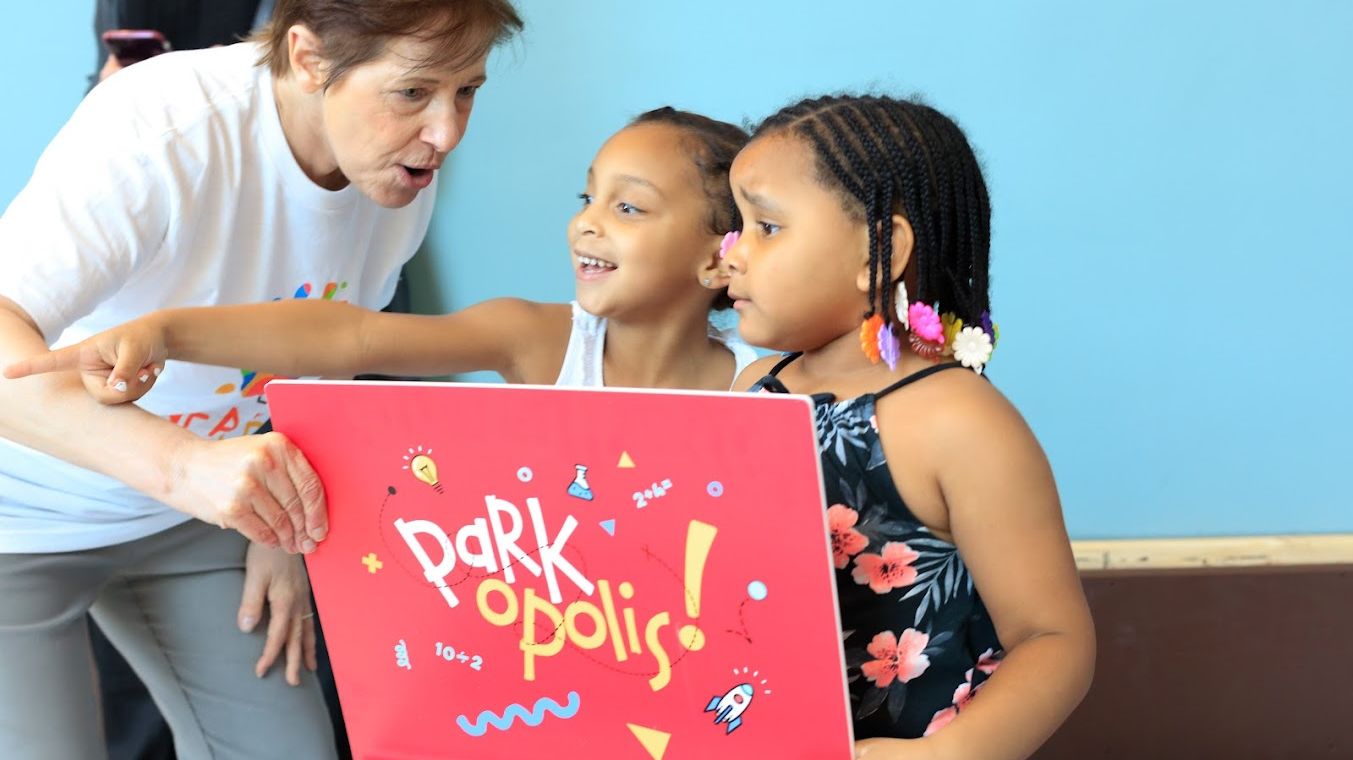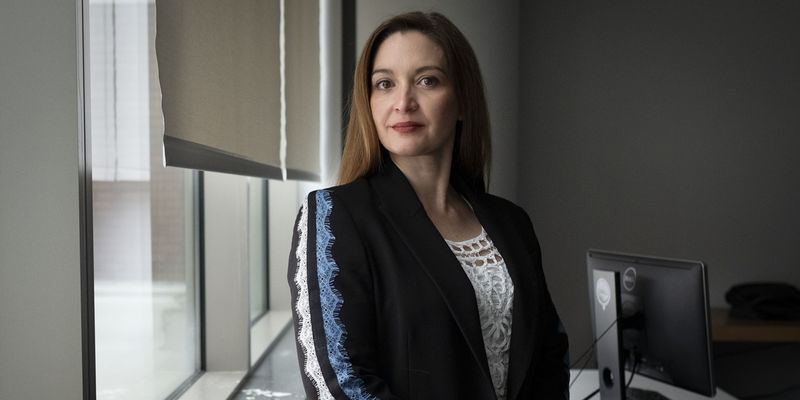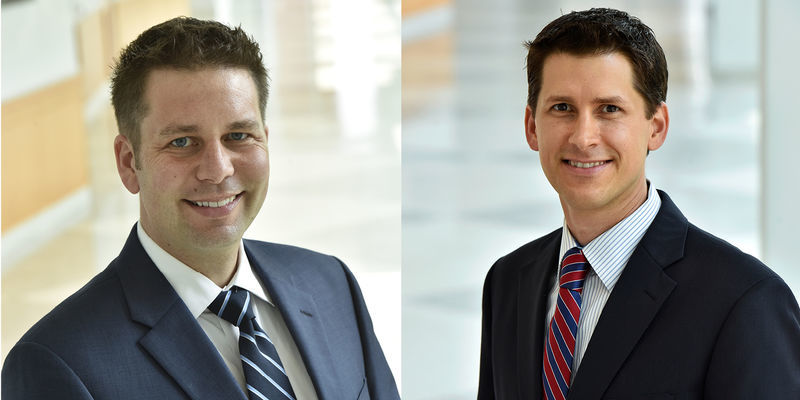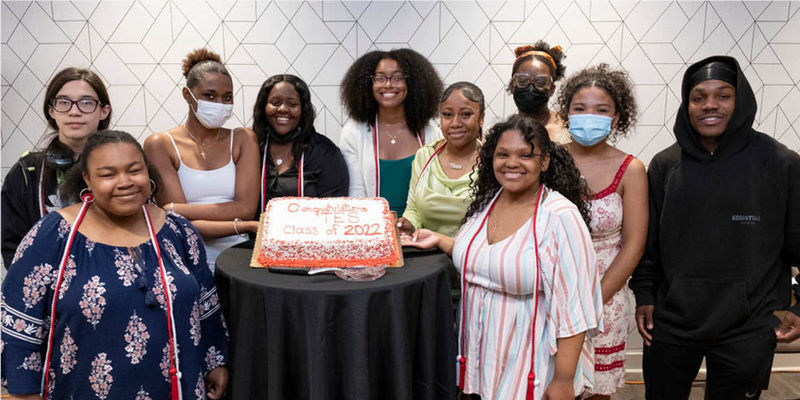Posted June 2, 2023
Temple’s Kathy Hirsh-Pasek awarded nearly $20 million from the LEGO Foundation
The grant will enable the director of Temple’s Infant and Child Lab to implement her Active Playful Learning model—an evidence-based pedagogical approach to joyful deeper learning—for grades K through four in four states: California, Illinois, Texas and Virginia.

Photography By:
Sahar Coston-Hardy
Thanks to a new grant from the LEGO Foundation, Professor of Psychology Kathy Hirsh-Pasek and her team are working with communities, districts and educators to implement an approach to teaching that is culturally inclusive, builds on what science tells us about how human brains learn and prepares students to succeed in the 21st century.
Kathy Hirsh-Pasek is disrupting the educational status quo.
For more than twenty years, the Stanley and Deborah Lefkowitz Faculty Fellow of Psychology at Temple has been translating her academic research about how kids learn into usable nuggets for teachers and parents.
“In a world in which ChatGPT can memorize, synthesize data and even write poetry, it is urgent that we adapt to allow students to learn the skills they will need to thrive in the world of next year, not yesteryear.”
-- Kathy Hirsh Pasek, professor of psychology and director of Temple's Infant and Child Lab
“What we do now is teach for narrowly construed skills in a very pedantic way,” said Hirsh-Pasek, who serves as director of the Temple University Infant and Child Lab. “In a world in which ChatGPT can memorize, synthesize data and even write poetry, it is urgent that we adapt to allow students to learn the skills they will need to thrive in the world of next year, not yesteryear.”
Now, in support of her efforts to bring deeper learning into classrooms, Hirsh-Pasek and her team have been awarded a five-year, $20 million grant from the LEGO Foundation. The grant will allow researchers from the University of Delaware, University of New Hampshire, Vanderbilt, University of Chicago, University of Virginia, the University of California at Irvine, the University of Dallas at Texas and Southwestern Methodist University to follow children from pre-K through fourth grade in school districts in four states—California, Illinois, Texas, and Virginia—as they engage in a socially interactive and joyful learning model. The model has already been piloted in schools in Pennsylvania, Michigan and New Hampshire.
The project, which prioritizes underresourced schools, aims to work with communities, districts and educators to support an approach to teaching that is culturally inclusive, builds on what science tells us about how human brains learn and prepares students with the skills they will need to thrive.
In her most recent book Making Schools Work: Bringing the Science of Learning to Joyful Classroom Practice (2022), written with her long-term collaborator Roberta Golinkoff of the University of Delaware and a team of teachers, school administrators and scientists, Hirsh-Pasek charts how active, engaged, socially interactive and playful classrooms can lead to joyful teaching and deeper learning while also supporting the six Cs.
According to Hirsh-Pasek, there are three parts to the learning equation—all emanating from basic research. The first part of the equation prioritizes cultural values—what’s important to a community, what do they believe—and how can we enlist parents and teachers as partners? The second part involves offering a new pedagogical model in our classrooms that encourages meaningful, joyful social interaction and engaging, iterative activities. And, finally, we need to help students build an interconnection of skills, the “six Cs,” that are critical for thriving in the modern world.
“Confidence is key,” she explained. “Confidence emerges from a growth mindset—the understanding that our abilities are not fixed, but can develop. It’s the idea that we can learn from failure.”
In 2003, Hirsh-Pasek and Golinkoff launched a movement with the publication of their book Einstein Never Used Flashcards: How Our Children REALLY Learn—and Why They Need to Play More and Memorize Less. Lauded by child development professionals, academics and teachers, the book’s commonsense approach to parenting debunked myths disseminated by the accelerated learning industry.
Since then, Hirsh-Pasek and Golinkoff have been sounding the alarm about an education crisis in schools and in informal out-of-school contexts.
“Despite academic evidence pointing to a positive relationship between active play and learning, play continues to decline as an important part of children’s lives,” said Hirsh-Pasek. “If we don’t get it right in our schools, we will live with the negative effects years from now when these same children enter the workforce.”
“Our children are starving for more social interaction and joy in their learning experiences. The post-COVID-19 climate demands that we meet these needs for their mental health and well-being,” she added.
While the grant has funded work in classrooms, a similar three-part equation enhances intergenerational learning and opportunities in communities. With the goal of building family friendly and safe cities that enhance social and academic growth, she partners with the nonprofit Playful Learning Landscapes Action Network and the Brookings Institute, to work with communities to codevelop playful learning structures in everyday spaces like parks, supermarkets, libraries and bus stops. She and her colleagues find that these spaces not only beautify neighborhoods, but also encourage intergenerational interactions that spark optimal, fun lifelong learning.
Her 2016 book, Becoming Brilliant: What the Science Tells Us About Raising Successful Children, appeared on the NY Times Best Seller list in Education and Parenting. The book reinforces the notion of learning as a social, relationship-oriented process and offers parents suggestions for ways to supplement what their children are doing in school by doing activities with them in the moment while, for example, making a bed or shopping for groceries.
“Computers will always be better than us at some things,” said Hirsh-Pasek.
“But what they can’t be better than us at is being human—making friends, being social, interacting as citizens in a community and being original creators. With that in mind, we may need to not only redefine what success in school means, but also actually reimagine what school can be.”


